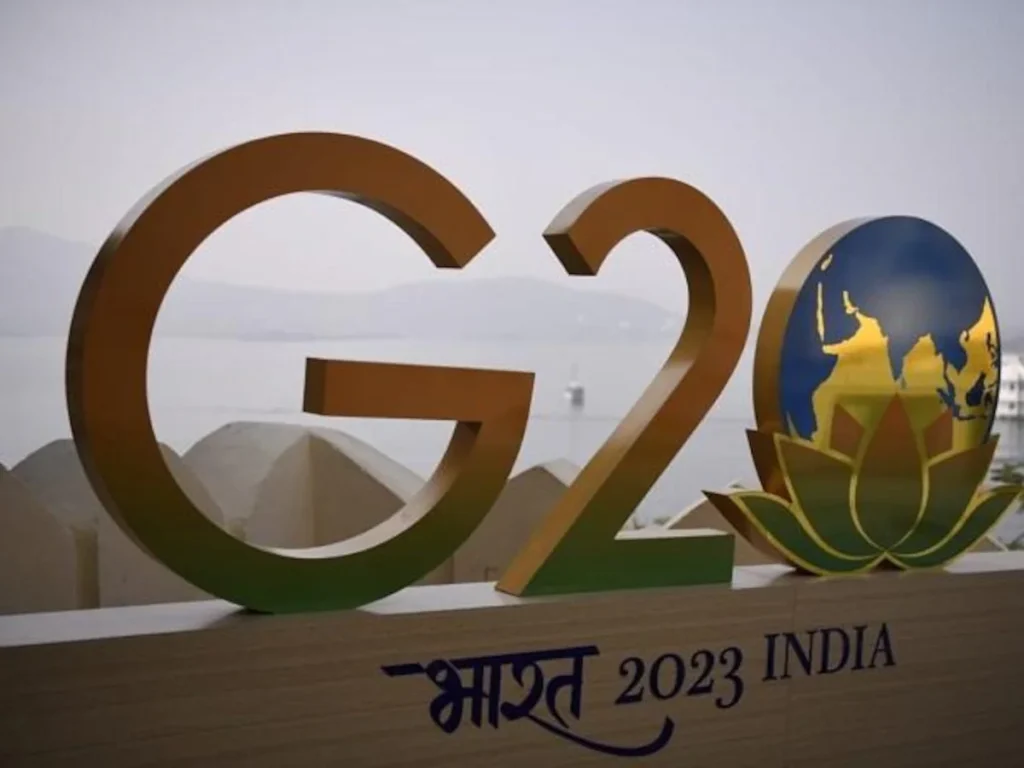
Major Cybersecurity Breach Threatens G20 Summit
As New Delhi gets ready to host the 18th G20 Summit, a serious cybersecurity issue has emerged that could affect global discussions. Indonesian hackers, known as GanoSec Team, have defaced an important Indian government website called DGT.GOV.IN. This shocking act raises concerns about India’s ability to protect its online systems. What’s even more worrisome is that other Indonesian and Islamic hacker groups, like Team Herox and Jambi Cyber Team, plan to join in. They’ve even invited hackers from around the world to participate, turning this into a potential crisis.
Telegram Channels Used as Cyber War Rooms
These hackers are using Telegram to plan their attacks and share messages. While some of their official groups on Telegram have been banned, the use of encrypted messaging apps makes it tough for law enforcement to stop them. This adds a new challenge to dealing with the situation.
Economic Consequences for India
The G20 Summit is a big deal for India, as it’s the current host and represents countries that control a lot of global trade. If these cyberattacks disrupt the summit, it could lead to massive financial losses for India. This would harm India’s reputation on the world stage and affect its economy. With the summit just days away, India’s cybersecurity team faces a race against time to protect its digital systems.
Major Cybersecurity Breach Threatens G20 Summit
India is gearing up for the 18th G20 Summit in New Delhi, a global event of immense economic and political significance. However, the preparations have been marred by a significant cyber threat. Indonesian hackers, going by the name GanoSec Team, have launched a daring attack by defacing the official website of India’s Directorate General of Training (DGT.GOV.IN). The website now displays a message claiming to be “Under Maintenance,” casting doubts on the robustness of India’s cybersecurity infrastructure. This audacious move has the potential to escalate from a cyber warfare scenario to a full-blown geopolitical crisis.
The timing of this cyberattack couldn’t be more critical, as the G20 Summit is set to address vital international economic issues. India, as the current holder of the G20 Presidency, is responsible for ensuring the success of this significant forum, which represents 85% of the global GDP. However, with cybersecurity concerns looming large, world leaders may find it challenging to focus on economic collaborations and discussions when the host nation is grappling with such a critical issue.

Telegram Channels Used as Cyber War Rooms
What’s particularly intriguing and concerning about this cyber threat is the method employed by these Indonesian hackers and their accomplices. They have primarily used Telegram, a popular encrypted messaging platform, to coordinate their attacks, make announcements, and disseminate propaganda. Although some of their official Telegram groups have been banned recently, the use of encrypted messaging platforms poses a unique challenge for cyber law enforcement agencies. This mode of communication allows hackers to operate with a certain degree of anonymity and evade detection, complicating efforts to neutralize the threat.
Economic Consequences for India
The potential economic fallout from these cyberattacks cannot be underestimated. The G20 Summit represents a significant financial opportunity for India, as it brings together countries controlling a combined 75% of global trade. Any disruption caused by these cyberattacks could lead to substantial economic losses worth crores. Such losses would not only impact India’s economy but also tarnish its reputation on the global stage. With the summit just days away, India’s cybersecurity team is facing a daunting challenge, one that transcends traditional geopolitical boundaries and is fought not in kilometers but in bytes and bits.
In conclusion, the cybersecurity breach targeting India’s government websites just before the G20 Summit is a matter of grave concern. The audacious attack by Indonesian hackers and the potential involvement of other hacktivist groups, as well as the open invitation to hackers worldwide, elevate this issue from a mere cyber threat to a potential geopolitical crisis. The use of encrypted messaging platforms further complicates efforts to counteract these threats. As the clock ticks down to the G20 Summit, India faces a race against time to fortify its digital defenses and ensure the security and success of this critical global event.
Please, also have a look into : After ‘President of Bharat’ fiasco, now ‘Prime Minister of Bharat’ will go to Indonesia



